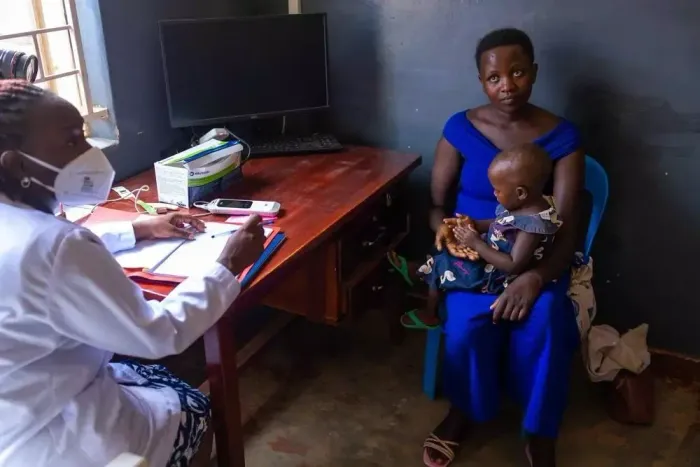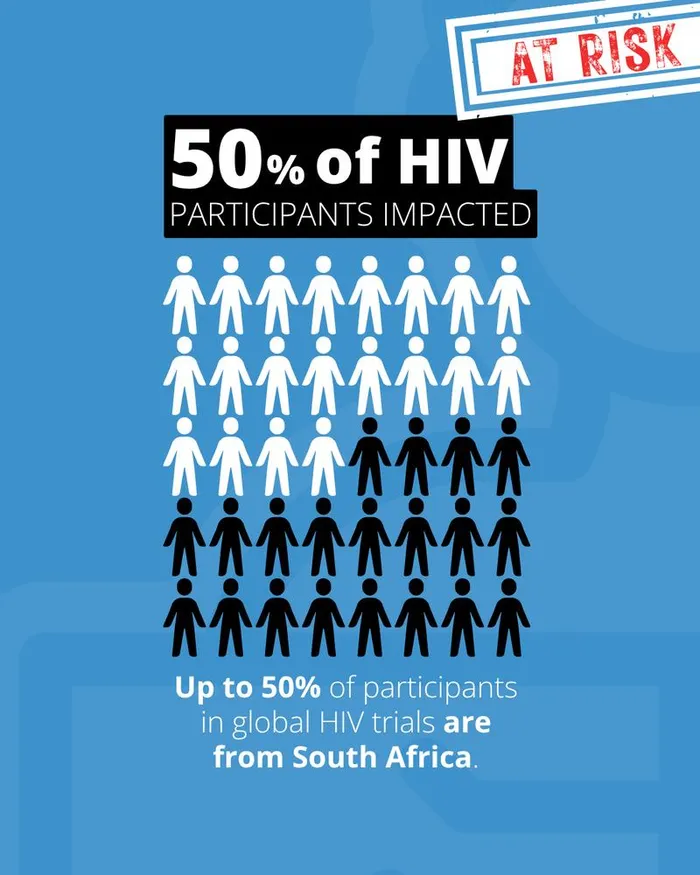HIV, TB research sites are in trouble
SA's globally renowned HIV &TB research infrastructure on the verge of collapse

Every three minutes, a child dies of tuberculosis (TB), even though treatment is available. In children, under-diagnosis is a major obstacle to effective treatment. New WHO recommendations, including treatment decision algorithms, could change all that. As part of the TACTiC project, launched in 2023, Doctors Without Borders (MSF) implemented these recommendations in 12 countries in Africa and Asia.
Image: Stuart Tibaweswa / MSF
A TOTAL of 39 TB and HIV clinical research sites in the country are under threat due to potential funding cuts by the US, placing at least 27 HIV trials and 20 TB trials at risk.
This is according to a recent joint analysis by Treatment Action Group (TAG) and Doctors Without Borders (MSF), the first to be conducted in an effort to map specific trials and clinical research sites related to HIV and TB that are at risk due to the US funding cuts.
It comes just days after Health Minister Dr Aaron Motsoaledi attempted to calm fears following a report that funding cuts, particularly from the US, have been cited as the reason behind South Africa’s 21% decline in viral load testing.
He assured South Africans that the country’s HIV/Aids programme was not at risk of collapsing due to the withdrawal of US foreign aid funding through Pepfar, and that the country will not beg the Trump administration to reinstate the US-backed programme that directly supported more than 16 000 health workers and played a key role in this country’s fight against HIV/AIDS.
As per TAG and MSF’s analysis, TB trials that are at risk include new drugs and shorter, safer regimens for treatment and prevention, an optimised regimen for TB meningitis, and therapeutic and preventive vaccines.
Cutting support to sites in South Africa that are part of international clinical trial networks including ACTG, HVTN and IMPAACT, could derail up to 30% of global TB trial enrolment and between 50-90% for studies focused on paediatric and pregnant populations.

For HIV, trials at risk include cure-related protocols involving broadly neutralising antibodies (bNAbs) and analytical interruptions of antiretroviral therapy in both adults and infants, studies to promote treatment adherence for youth, and trials of innovative preventive vaccine modalities designed to induce bNab production.
Image: MSF
“Public funding from the US government to South Africa is the scaffold on which pharmaceutical companies, philanthropies, and other governments invest in transformative TB and HIV science,” said Lindsay McKenna, TB project co-director of TAG.
“These ongoing funding disruptions by the US government don't just affect US-funded research projects, they put in peril a much wider ecosystem of global research. Donors must act swiftly to preserve scientific advances, prevent the collapse of medical research infrastructure in South Africa, and ensure continuity of care for people living with HIV and TB that have volunteered to participate in research.”
For HIV, trials at risk include cure-related protocols involving broadly neutralising antibodies (bNAbs) and analytical interruptions of antiretroviral therapy in both adults and infants, studies to promote treatment adherence for youth, and trials of innovative preventive vaccine modalities designed to induce bNab production.
The analysis was primarily focused on National Institutes of Health (NIH)-funded DAIDS HIV Clinical Trials Network studies and research infrastructure, but the researchers said this is just the tip of the iceberg.
The US funding cuts impacting critical research being funded through other NIH mechanisms, US university grants, US Centers for Disease Control and Prevention (CDC) and Pepfar are expected to disrupt a much wider array of TB and HIV research projects.
“For years, South Africa has spearheaded the research and development of critical innovative medical tools for the prevention, diagnosis, treatment and care of HIV and TB which have saved lives not just within South Africa’s borders, but also in communities worldwide,” said Dr Tom Ellman, director of the Southern Africa Medical Unit (SAMU) of MSF.
“If the research work of tackling these two infectious diseases – including for the most vulnerable – is stalled, we risk losing hard-won progress. These cuts are especially devastating since they come on top of existing reductions to TB and HIV programming. We call on all potential donors to step up, as without sustained investment, we will never end these deadly epidemics.”
Research conducted in South Africa – much of it led by South African scientists and supported with funding from the NIH, and, to a lesser extent, the CDC and the US Agency for International Development (USAID) – has helped to bring forward most of the innovations introduced globally in the last two decades and shaped global health policies that have revolutionised TB and HIV prevention, diagnosis, treatment and care, benefiting both people locally and communities worldwide, the organisations said.
Cape Times
Related Topics: